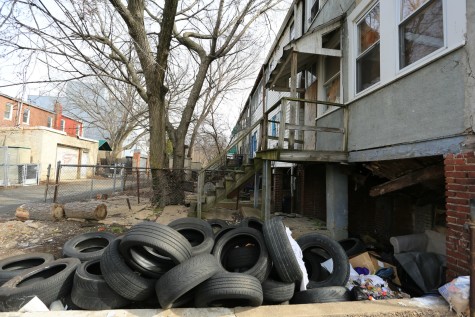Justice for sexual crimes: start with admin
Rape. It’s a horrible crime that makes us think of dark alleys and shady strangers. But rape is occurring on beautiful college campuses and is being perpetrated by well-educated young men. This is detailed extensively in the recent Rolling Stone article about incidents of sexual assault at the University of Virginia and the mishandling of these cases. The controversial story has created an uproar over the issue of sexual assault on college campuses around the nation.
In a study done by the Centers for Disease Control, it was found that 19 percent of undergraduate women have been sexually assaulted or a victim of an attempted assault.
Much of the anger over this issue has been directed towards fraternities, which are being blamed for campus rape culture. It wouldn’t be entirely erroneous to blame fraternities and the behaviors they encourage. However, trying to make frats co-ed or doing away with them entirely is a fruitless game of Whack-A-Mole.
Fraternities are deeply entrenched in many institutions’ cultures. Therefore, efforts to shut down fraternities and sororities would do virtually nothing to prevent sexual assault. Not only would it be difficult to nix Greek life, but its effects would be limited.
As long as there are thousands of young people living together on a campus, there will always be underage and binge drinking. There will always be wild, out-of-control parties where women are preyed on. Getting rid of fraternities won’t change that. Just like how dressing more conservatively doesn’t deter rapists, neither would eliminating Greek life.
What college administrations need to do is take a look in the mirror. At UVA, according to the Rolling Stone article, 183 students have been expelled for Honor Code violations since 1998, and none have been kicked out for rape. In letting rape go unpunished, UVA’s administration is sending offenders the message that sexual assault isn’t nearly as terrible a crime as plagiarism. So if schools want their reputations to remain intact, they need to reconsider how they’re handling rape cases.
For instance, Emma Sulkowicz, a senior at Columbia University, recounted to New York Magazine that the deans who adjudicated her case asked her extremely inappropriate and irrelevant questions. One administrator, Sulkowicz alleges, wrote down that she had been intoxicated the night of her attack, even though she’d been completely sober.
Universities like Columbia have almost unlimited resources, so there’s no reason why they shouldn’t invest in better-trained or even specialized staff who can handle sexual assault cases brought before them. And instead of trying to act as the police, the judge and the jury in such cases, colleges should encourage students to go to the police, who are much better equipped to conduct investigations, and file criminal charges.
Sexual assault is a messy issue, especially when one factors in the blurred lines that are drawn by the alcohol-fueled hook-up culture on many campuses. There is no easy solution to this problem. But fixing the broken disciplinary system that universities have created is a necessary step forward towards change.



